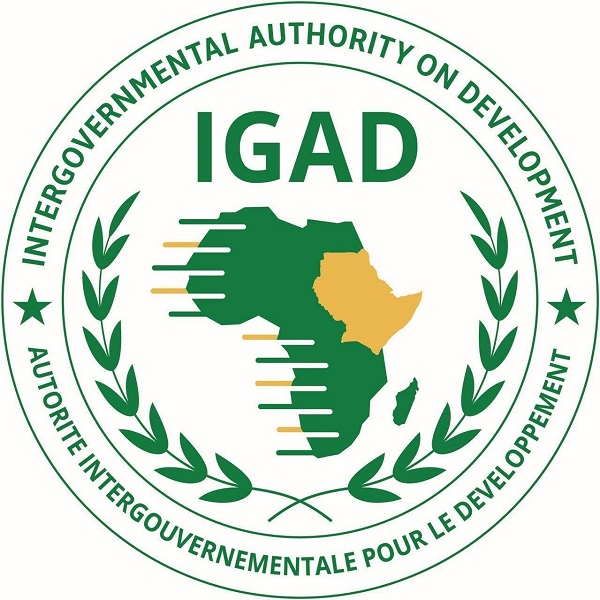Collaboration Pivotal To Scale Up Achievements and Overcome Challenges In the IGAD Region - ENA English
Collaboration Pivotal To Scale Up Achievements and Overcome Challenges In the IGAD Region

BY STAFF WRITER
The Intergovernmental Authority on Development (IGAD) was created in 1996 to succeed the Intergovernmental Authority on Drought and Development that was founded in 1986 to deal with issues related to drought and desertification in the Horn Africa. The role of the organization has continued to grow over time and its responsibilities have been scaled up.
The IGAD countries share not only common borders but also similar socio-economic, ecological, security and political challenges which were far more visible over the last decades. These countries have been grappling with recurrent drought, desertification, and cyclic effects of the EL-Nino and La Nina climatic hazards which have continued unabated to date.
Addressing the 3rd State of the IGAD Region Session convened in Nairobi, Kenya, this week, Workneh Gebeyehu, the Executive Secretary of IGAD raised various issues, performance and challenges that IGAD has cruised through over the last several years.
Workneh noted that under development is one of the prime causes of sporadic conflicts and security threats in the region. He also mentioned the contributions made by IGAD to resolve the border conflicts between Ethiopia and Sudan, the conflict in the northern part of Ethiopia, the tense political situation in Sudan and the formation of a unified army in South Sudan as the result of the implementation of the revitalized peace talks.
The executive secretary also noted the situation in Somalia and the efforts made by IGAD to solicit support for the government in improving its security which was constantly hampered by the terrorist activities of Al-Shabab.
Prolonged drought in IGAD countries resulted in the loss of 4 million livestock which seriously affected the livelihood of more than 10% of the population in the region. According to Workneh, 50% of the African livestock population is found in the IGAD region of the Horn of Africa. This shows the extent to which drought is contributing to the depletion of the most needed economic resources of the region.
The linkages between the recurrent drought, food insecurity and competition on scare resources in the semi-arid ecologies of the region, compounded by security threat from Al-Shabab and its allies, have further complicated the already volatile and fragile socio-economic and political conditions in the region.
The repetitive drought situation, particularly in Somalia calls for cooperation among IGAD countries in assisting the country to avert further loss of human life, livestock and drought induced degradation of the ecology in the area.
The executive secretary also expounded on regional pandemic preparedness in the aftermath of the devastating effects of COVID-19 and the proliferation of TB, malaria and recently Ebola.
The IGAD countries are geo-strategically well positioned for promoting economic integration between member countries. Almost all the countries in the region are endowed with one or more natural resources and infrastructure facilities like land, rail, sea and air transport. According to Workneh, 50% of the economy of IGAD countries is already integrated but there is a need to speed up the soft integration program to link the process with AfCFTA and similar integration efforts in the Horn of Africa.
Ethiopia has already linked some IGAD countries with railway, all weather roads and air transport. Ethiopia’s commitment to strengthening the security of IGAD member countries is also quite visible. The country has also provided training assistance to security and police forces as well as military officers for IGAD countries as a major prerequisite for strengthening peace and security in the region.
Ethiopia has already been providing electric power to Sudan, Djibouti, and Kenya. By the same token, preparation is also well underway to ingrate with South Sudan. Ethiopia is envisioning to expand a power integration system which would serve as a backbone for a viable and sustainable economic integration among IGAD countries.
With regard to sharing its experience in green initiative, Ethiopia has provided support seedlings as part of greening the region and sharing its experience to scale up Green Legacy Initiative to IGAD countries and beyond, towards averting the effects of climate change.
It must be stressed that IGAD’s early warning system in the areas of meteorology, drought, conflict need to be revitalized to plan for proper response mechanisms in all the sectors.
All told, IGAD member countries should intensify collaborations to scale up achievements and overcome challenges in the region.